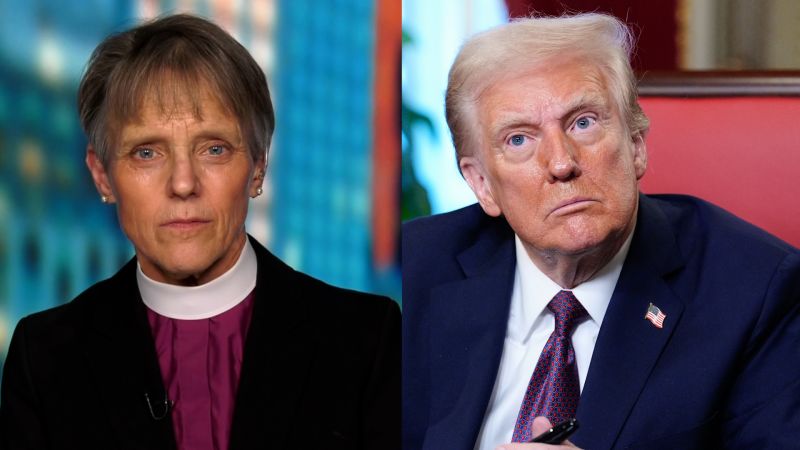Breaking: Bishop Reveals Raw Motivation Behind Viral Trump Confrontation

In a powerful and poignant moment of spiritual leadership, Bishop Mariann Edgar Budde delivered a compelling message that transcended traditional religious boundaries. Following her impassioned sermon at the National Cathedral's interfaith Service of Prayer for the Nation, she sat down with CNN's Erin Burnett to further articulate her direct appeal to President Trump.
Bishop Budde's sermon was more than just a religious address; it was a heartfelt plea for unity, compassion, and healing in a deeply divided nation. Her words, carefully chosen and delivered with remarkable conviction, sought to bridge political and social divides, calling for understanding and reconciliation in a time of significant national tension.
During her candid conversation with Burnett, the bishop expanded on her message, emphasizing the critical need for leadership that promotes empathy, respect, and mutual understanding. Her approach was both pastoral and prophetic, challenging political leaders to rise above partisan rhetoric and focus on the fundamental human values that unite Americans.
The National Cathedral's interfaith service provided a unique platform for Bishop Budde to articulate a vision of hope and collective healing, demonstrating the power of spiritual leadership in addressing complex social and political challenges.

